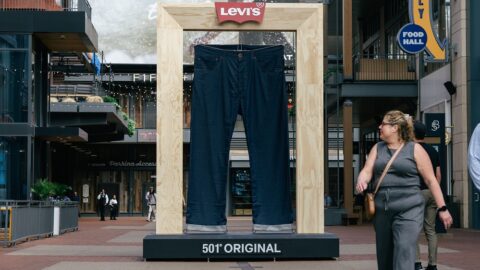Amazon’s reported jump into small grocery locations may be part of a long-term plan, one that just may test the limits of how far the e-Commerce brand will be able to extend its offerings. Amazon is planning on opening 20 grocery stores in the U.S. by the end of 2018, according to internal documents accessed by Business Insider.
If the pilot succeeds, Amazon envisions opening as many as 2,000 “multifunction” stores across the U.S. over the next 10 years. While plans are fluid and can certainly change at any moment, Amazon already has proposed a launch schedule of 200 stores per year supported by distribution centers to replenish their inventories, the report reveals.
Amazon is no stranger to the concept of convenience. The company released its one-touch “Dash buttons” in 2015, and has since expanded the total to 226. Nor would this be the first brick-and-mortar venture for the brand, which now operates bookstores in Seattle, Portland, Ore. and San Diego.
Advertisement
The e-Commerce giant wants to experiment with different versions of stores during the pilot program, contradicting initial speculation that these stores would be exclusive to AmazonFresh subscribers. While 10 of the grocery stores will be “click-and-collect” drive-up spots for subscribers to pick up their online orders, the other 10 reportedly will be more traditional stores for all shoppers to enter and buy goods.
“Amazon has done its homework on the growth of ‘fresh,’ the desire of consumers to select produce and the driving home market,” said Babs Ryan, grocery and retail customer behavioral expert at ThoughtWorks Retail. “Amazon will have to differentiate to compete with C-stores such as 7-Eleven, Cumberland Farms and QuikTrip with their advantage of forecourt gas traffic generators and significant advances in fresh. Pay-at-the-pump technology and mobile order ahead will enable these C-stores to quickly test adding SKUs and trunk delivery while customers are filling up. To differentiate itself from C-stores and grocers, new entrants should look less at why consumers don’t like buying produce online or why they claim they aren’t using click and collect, and more at what consumers already are doing for dinner tonight and on the way home.”
Amazon Rides Grocery Change Wave
If Amazon is serious about moving into the grocery space, it will do so at a time when the entire vertical is undergoing dramatic change. The online grocery delivery/pickup model that Amazon is trying to expand on with its stores only continues to grow, with competing brands such as FreshDirect, Instacart and Blue Apron all aiming to capitalize on a market expected to take in $18.8 billion in revenue in 2021.
European discount supermarkets Aldi and Lidl have established plans for expansion within the U.S., with the latter expected to launch its first 150 stores in this country by 2018. This means bigger brands such as Kroger and Walmart will need to compete in a no-frills environment that focuses on a fresh assortment of cheap, private label foods.
The focus on options that are both healthier and less expensive has caught on with consumers and other big box grocers, which in turn has diminished the value of Whole Foods Market and other brands tied to offering natural, organic foods at premium prices.
And of course, consolidation has already taken hold with many of grocery’s big guns. International supermarket conglomerates Ahold and Delhaize are completing a $28 billion merger that affects U.S. subsidiary grocers such as Giant, Hannaford and Stop & Shop.
With so many changes occurring within the grocery industry as brands aim to match shifting consumer interests, there is an overriding emphasis on convenience, quick service and product availability. It appears Amazon is seeing this transformation unfold and seizing an opportunity to take advantage of the disruption.
“Leveraging customer data, improving personalization, mobile centricity and building efficiencies into in-store experiences are the only options for those who want to survive in this new reality,” said Shekar Raman, Co-Founder and CEO of Birdzi. “This is just a warning shot from Amazon. Of course there are tens of thousands of supermarkets, and I don’t mean to spell gloom and doom, but future is evident and early movers will be the only ones to prosper in this new tomorrow. Supermarkets who build deeper relationships with their communities, get smarter with their data and build strategic partnerships to stay in the technology game are sure to weather this change. Game on.”








